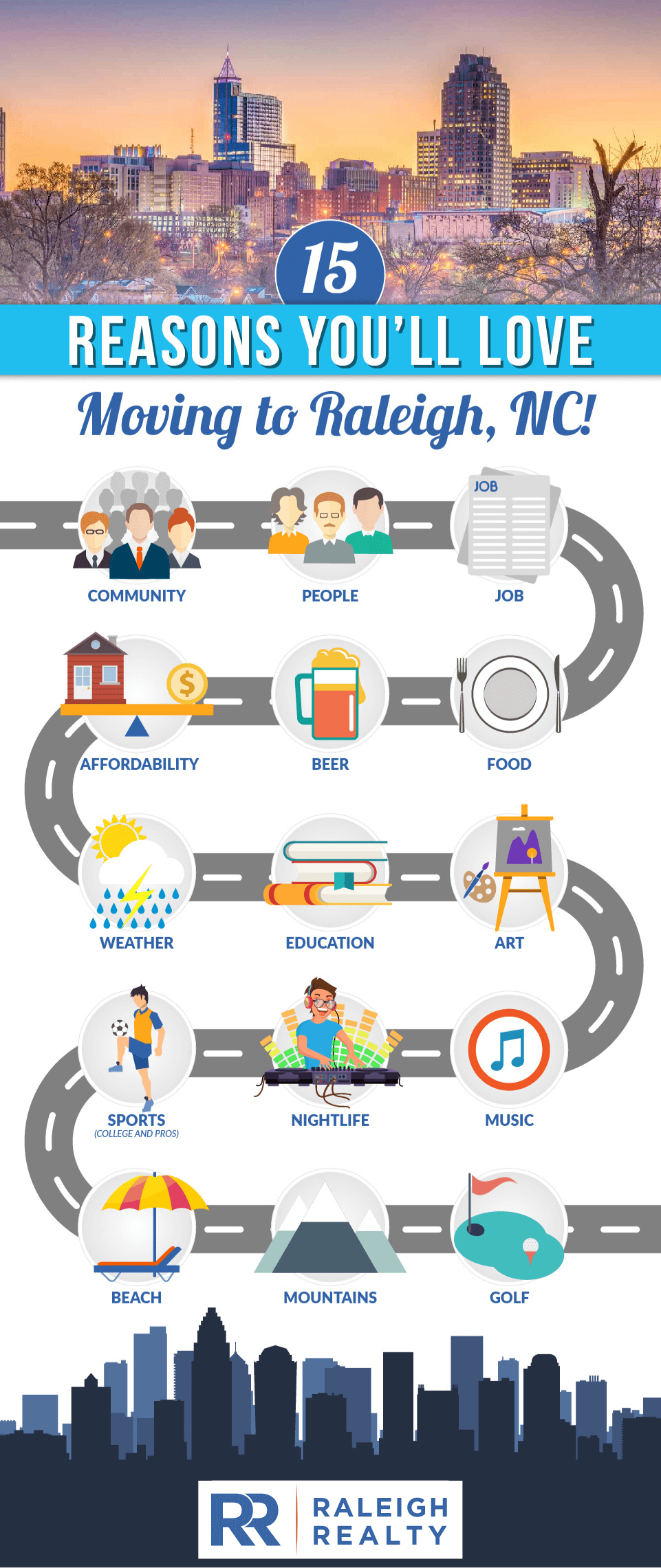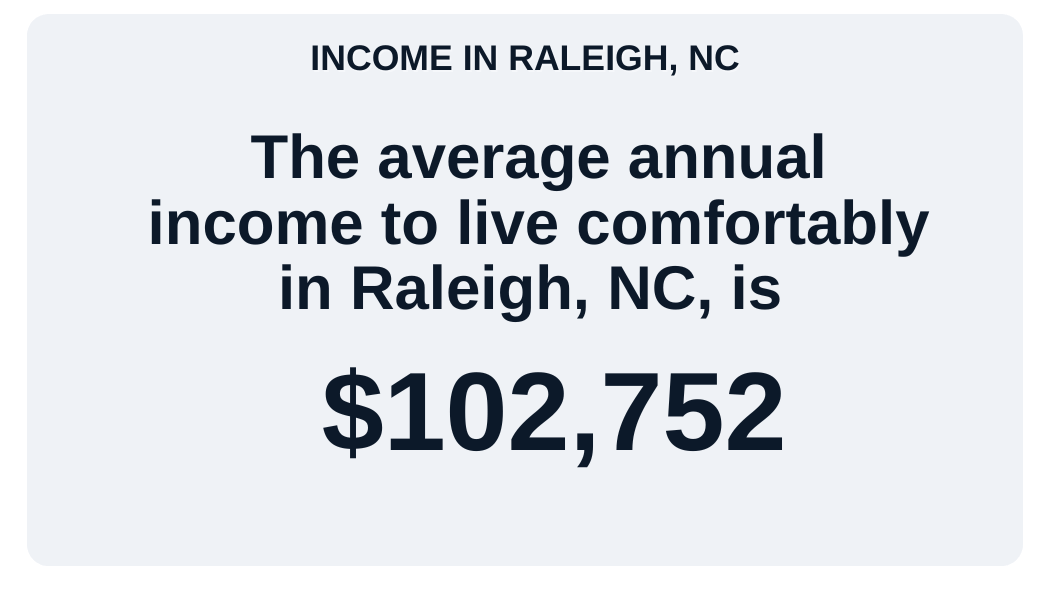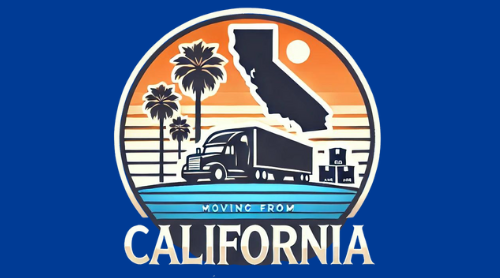Moving From San Francisco To Raleigh
Are you considering a move from the Golden Gate City to the City of Oaks? Leaving behind San Francisco's iconic fog and steep hills for Raleigh's vibrant cultural scene and Research Triangle opportunities can be a daunting task. From navigating the logistics of a cross-country relocation to adjusting to the distinct pace of life in the Tar Heel State, there's much to consider. In this article, we'll delve into the pros and cons of making the move from San Francisco to Raleigh, providing valuable insights to help you make an informed decision.

- A New Chapter: Leaving the Bay Area for the City of Oaks
- Is it a good idea to move to Raleigh?
- Is the quality of life in Raleigh NC?
- How much does it cost to live comfortably in Raleigh NC?
- Where are people moving to Raleigh from?
- FAQ
- What are the biggest differences between San Francisco and Raleigh in terms of cost of living?
- How will my job opportunities change when I move from San Francisco to Raleigh?
- What are the pros and cons of leaving California's diverse culture for Raleigh's more traditional Southern culture?
- How will my daily commute and transportation options change in Raleigh compared to San Francisco?
A New Chapter: Leaving the Bay Area for the City of Oaks
Moving from San Francisco to Raleigh can be a significant change, but with the right mindset and preparation, it can also be a fantastic opportunity for a fresh start. Raleigh, the capital city of North Carolina, offers a unique blend of Southern charm, rich history, and modern amenities, making it an attractive destination for those looking to escape the high costs and fast pace of the Bay Area. Here are some key things to consider when making the move:
Cost of Living: A Significant Difference
One of the most substantial advantages of moving from San Francisco to Raleigh is the significant decrease in cost of living. The cost of housing, food, transportation, and other necessities is much lower in Raleigh, making it an attractive option for those looking to stretch their budget further. According to data from Zillow, the median home value in Raleigh is around $270,000, compared to over $1.3 million in San Francisco.
Job Market: Opportunities Abound
Raleigh is home to a thriving job market, with major industries in technology, healthcare, and education. The city is also a hub for startups and entrepreneurs, with many incubators and accelerators available to support new ventures. While the job market in Raleigh may not be as robust as in San Francisco, there are still plenty of opportunities available, particularly in fields such as software development, data analytics, and biomedical research.
Climate: Trading Fog for Sunshine
The climate in Raleigh is quite different from that in San Francisco. While the Bay Area is known for its cool, foggy weather, Raleigh experiences a humid subtropical climate with hot summers and mild winters. This can be a welcome change for those who enjoy spending time outdoors and taking advantage of the city's many parks and green spaces.
Lifestyle: A More Relaxed Pace
Raleigh is a city that values community and a more relaxed pace of life. Residents can enjoy a wide range of cultural and outdoor activities, from visiting the North Carolina Museum of Art to hiking in the nearby Piedmont forests. The city also has a thriving food and drink scene, with many breweries, restaurants, and cafes to explore.
Traffic and Transportation: A Breeze Compared to SF
One of the biggest advantages of living in Raleigh is the ease of getting around. Traffic is relatively light, and parking is generally easy to find. The city also has a well-developed public transportation system, including buses and a commuter rail line. Compared to the congested streets and high parking rates of San Francisco, Raleigh is a breath of fresh air.
| Category | San Francisco | Raleigh |
|---|---|---|
| Median Home Value | $1,350,000 | $270,000 |
| Average Rent (1-bedroom apt) | $3,000/month | $1,100/month |
| Unemployment Rate | 2.3% | 3.5% |
| Average Commute Time | 35 minutes | 20 minutes |
Is it a good idea to move to Raleigh?

Raleigh, the capital city of North Carolina, is a popular destination for people looking to relocate. With its strong economy, excellent education system, and high quality of life, Raleigh has a lot to offer. Here are some reasons why moving to Raleigh might be a good idea:
Job Opportunities
Raleigh is part of the Research Triangle, a region known for its high-tech industry and research institutions. This has led to a strong job market, with many opportunities in fields such as technology, healthcare, and education. Major companies like IBM, Cisco Systems, and SAS Institute have a presence in Raleigh, and the city is also home to a thriving startup scene. Some of the top industries in Raleigh include:
- Technology and software development
- Healthcare and biotechnology
- Education and research
Education
Raleigh is known for its excellent education system, with several top-ranked universities and colleges in the area. North Carolina State University, Duke University, and the University of North Carolina at Chapel Hill are all located in the Raleigh-Durham area, offering a wide range of academic programs and research opportunities. Additionally, Raleigh is home to a number of highly-rated public and private schools, making it an attractive option for families.
Quality of Life
Raleigh offers a high quality of life, with a mild climate, plenty of outdoor recreational activities, and a vibrant cultural scene. The city has a number of parks, trails, and green spaces, including the Neuse River Greenway Trail and the JC Raulston Arboretum. Raleigh is also home to a number of museums, galleries, and performance venues, including the North Carolina Museum of Natural Sciences and the Raleigh Little Theatre. Some of the benefits of living in Raleigh include:
- A mild climate with four distinct seasons
- Abundant outdoor recreational opportunities
- A vibrant cultural scene with many museums and performance venues
Is the quality of life in Raleigh NC?

The quality of life in Raleigh, NC is generally considered to be high. The city offers a great balance of urban and natural environments, a strong economy, and a high level of civic engagement. Raleigh is consistently ranked as one of the best places to live in the United States, with a cost of living index that is slightly below the national average.
Pros of Living in Raleigh
Raleigh offers many advantages that contribute to its high quality of life. Some of the pros of living in Raleigh include:
- Job Opportunities: Raleigh has a strong and diverse economy, with a high concentration of jobs in the technology, healthcare, and education sectors.
- Outdoor Activities: The city has plenty of parks, green spaces, and trails, making it easy to enjoy the outdoors and stay active.
- Cultural Attractions: Raleigh is home to a variety of museums, galleries, and performance venues, providing residents with access to a rich cultural scene.
Cons of Living in Raleigh
While Raleigh has many advantages, there are also some drawbacks to consider. Some of the cons of living in Raleigh include:
- Traffic: Raleigh's rapid growth has led to increased traffic congestion, making commuting time longer.
- Housing Costs: While the overall cost of living in Raleigh is relatively low, housing costs have been rising in recent years, making it more difficult for some people to afford.
- <strong 夏Summer Humidity: The summer months in Raleigh can be hot and humid, which may be uncomfortable for some people.
Neighborhoods to Consider
Raleigh has many unique neighborhoods to choose from, each with its own character and advantages. Some popular neighborhoods to consider include:
- Downtown Raleigh: The downtown area is perfect for those who want to be in the heart of the action, with access to restaurants, bars, and cultural attractions.
- Glenwood: This neighborhood is known for its trendy restaurants and bars, as well as its vibrant arts scene.
- Cameron Village: This neighborhood is popular with families, with its tree-lined streets, parks, and access to good schools.
How much does it cost to live comfortably in Raleigh NC?

The cost of living comfortably in Raleigh, NC can vary greatly depending on individual circumstances, lifestyle, and personal preferences. However, here are some general guidelines to help estimate the costs:
Housing:
The cost of housing in Raleigh can range from $1,300 to $2,500 per month for a comfortable one-bedroom apartment in a desirable neighborhood. Here are some average costs:
Rent: $1,500 - $2,000 per month
Mortgage: $1,300 - $1,800 per month (assuming a $250,000 home with 20% down and a 30-year mortgage)
Essential Expenses
To live comfortably in Raleigh, you'll need to factor in essential expenses such as:
- Food: $800 - $1,200 per month for groceries and dining out
- Transportation: $500 - $800 per month for a car payment, insurance, gas, and maintenance
- Healthcare: $300 - $500 per month for health insurance and out-of-pocket expenses
- Utilities: $150 - $300 per month for electricity, water, gas, and internet
Lifestyle Expenses
In addition to essential expenses, you may want to consider lifestyle expenses that can enhance your quality of life in Raleigh:
- Entertainment: $500 - $1,000 per month for dining out, concerts, and hobbies
- Travel: $500 - $1,000 per month for vacations and weekend getaways
- Savings: 10% - 20% of your income for short-term and long-term savings goals
Tips for Living Comfortably on a Budget
To live comfortably in Raleigh on a budget, consider the following tips:
- Choose a neighborhood wisely: Look for areas with lower housing costs and proximity to public transportation
- Cook at home: Prepare meals at home to save on dining out expenses
- Take advantage of free amenities: Use public parks, libraries, and community centers to reduce entertainment costs
Where are people moving to Raleigh from?

People are moving to Raleigh from various parts of the country, attracted by the city's thriving job market, excellent quality of life, and affordable cost of living. According to data from the United States Census Bureau, between 2019 and 2020, Raleigh experienced a significant influx of new residents, with over 13,000 people moving to the city.
Top Cities People are Moving from
Raleigh's popularity is evident in the number of people relocating from other major cities in the United States. Some of the top cities people are moving from include:
- New York City, NY: Many people are fleeing the high cost of living and congested streets of New York City for Raleigh's more affordable and relaxed atmosphere.
- Washington, D.C.: The nation's capital is another top city people are moving from, drawn by Raleigh's similar cultural and economic opportunities at a lower cost of living.
- Charlotte, NC: As the largest city in North Carolina, Charlotte is a significant source of migration to Raleigh, with many people seeking the capital city's more diverse economy and cultural attractions.
Reasons for Moving to Raleigh
People are moving to Raleigh for a variety of reasons, including:
- Job opportunities: Raleigh is home to a thriving tech industry, with major employers like IBM, Cisco Systems, and SAS Institute, attracting professionals from across the country.
- Education: The city is renowned for its excellent universities, including North Carolina State University, Duke University, and the University of North Carolina at Chapel Hill, drawing students and faculty members alike.
- Quality of life: Raleigh's mild climate, outdoor recreational opportunities, and vibrant cultural scene make it an attractive destination for people seeking a better work-life balance.
Demographics of New Residents
The demographics of people moving to Raleigh reveal some interesting trends:
- Age: The majority of new residents are between 25 and 44 years old, indicating a strong presence of young professionals and families.
- Education: Over 60% of new residents hold a bachelor's degree or higher, contributing to Raleigh's highly educated population.
- Income: The median household income of new residents is around $70,000, higher than the national average, reflecting the city's strong economy.
FAQ
What are the biggest differences between San Francisco and Raleigh in terms of cost of living?
When moving from San Francisco to Raleigh, one of the most significant differences you'll notice is the dramatic decrease in cost of living. San Francisco is notorious for being one of the most expensive cities in the US, with a median home price of over $1 million and an average rent of over $4,000 per month. In contrast, Raleigh has a significantly lower cost of living, with a median home price of around $270,000 and an average rent of around $1,300 per month. This means that you'll have more disposable income in Raleigh, allowing you to enjoy a higher standard of living without breaking the bank.
How will my job opportunities change when I move from San Francisco to Raleigh?
While San Francisco is a hub for the tech industry, Raleigh is also a growing tech hub, with many major companies, such as IBM, Cisco, and SAS, having a presence in the area. Additionally, Raleigh is home to a number of startups and incubators, making it an attractive location for entrepreneurs and innovators. While the job market may not be as saturated as it is in San Francisco, Raleigh offers a more affordable and laid-back alternative for those looking to escape the fast-paced Bay Area lifestyle. Furthermore, Raleigh is also a major hub for the healthcare and biotechnology industries, offering a range of job opportunities in these fields.
What are the pros and cons of leaving California's diverse culture for Raleigh's more traditional Southern culture?
Moving from San Francisco to Raleigh will undoubtedly involve a significant cultural adjustment. San Francisco is known for its diverse and progressive culture, with a thriving LGBTQ+ community and a strong social justice movement. Raleigh, on the other hand, has a more traditional Southern culture, with a strong sense of community and hospitality. While some may find the slower pace of life in Raleigh to be a welcome change, others may miss the vibrant and eclectic atmosphere of San Francisco. It's essential to weigh the pros and cons of leaving California's diverse culture for Raleigh's more traditional Southern culture, considering factors such as food, arts, and entertainment options.
How will my daily commute and transportation options change in Raleigh compared to San Francisco?
In San Francisco, traffic and parking can be a nightmare, and the city's public transportation system is often overcrowded and unreliable. In contrast, Raleigh has a much more relaxed and drivable environment, with less traffic congestion and more parking options. Additionally, Raleigh has a growing public transportation system, including a bus and light rail system, making it easier to get around without a car. However, if you're used to walking or biking everywhere in San Francisco, you may find that Raleigh is more car-dependent, requiring more driving and parking.
